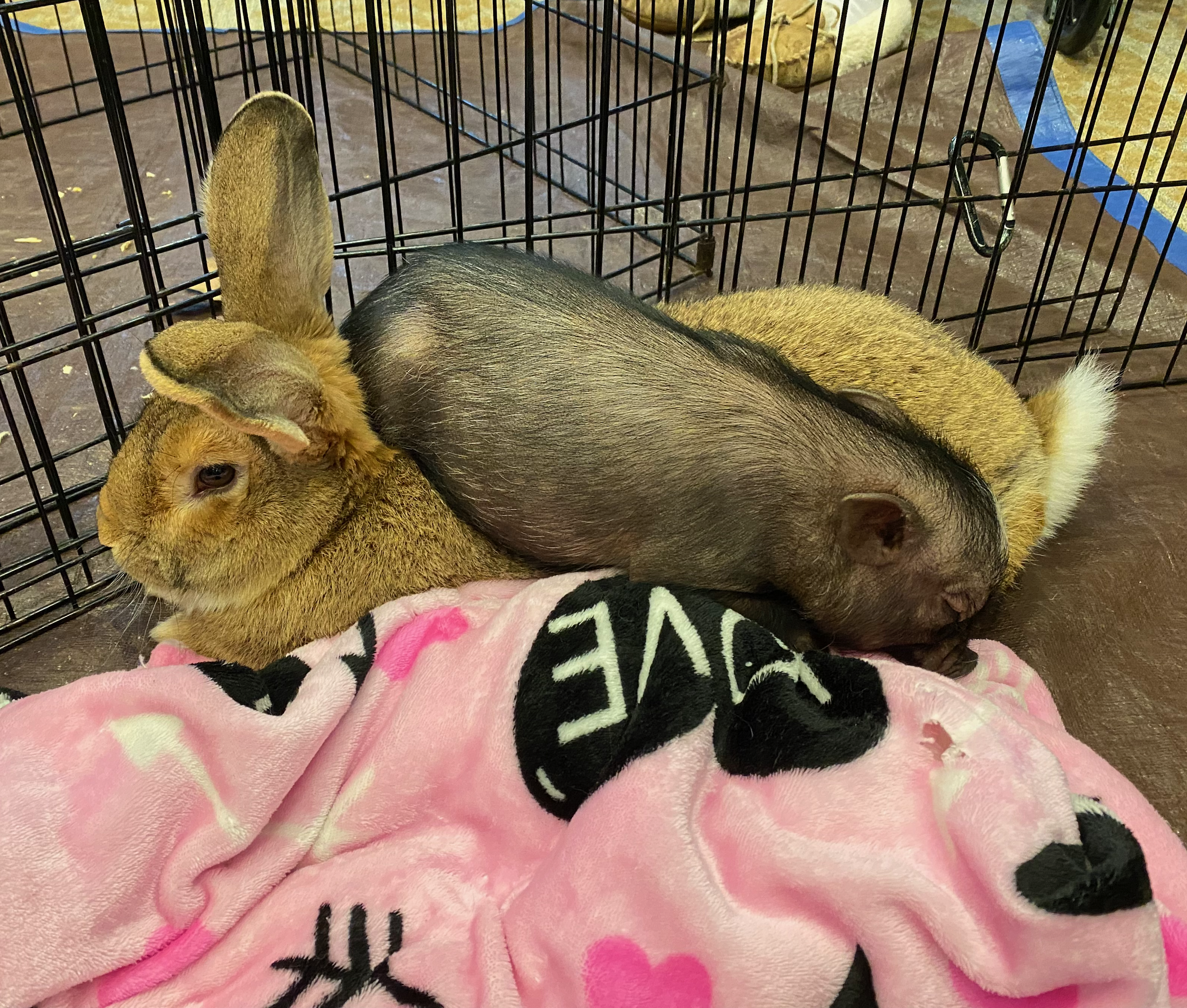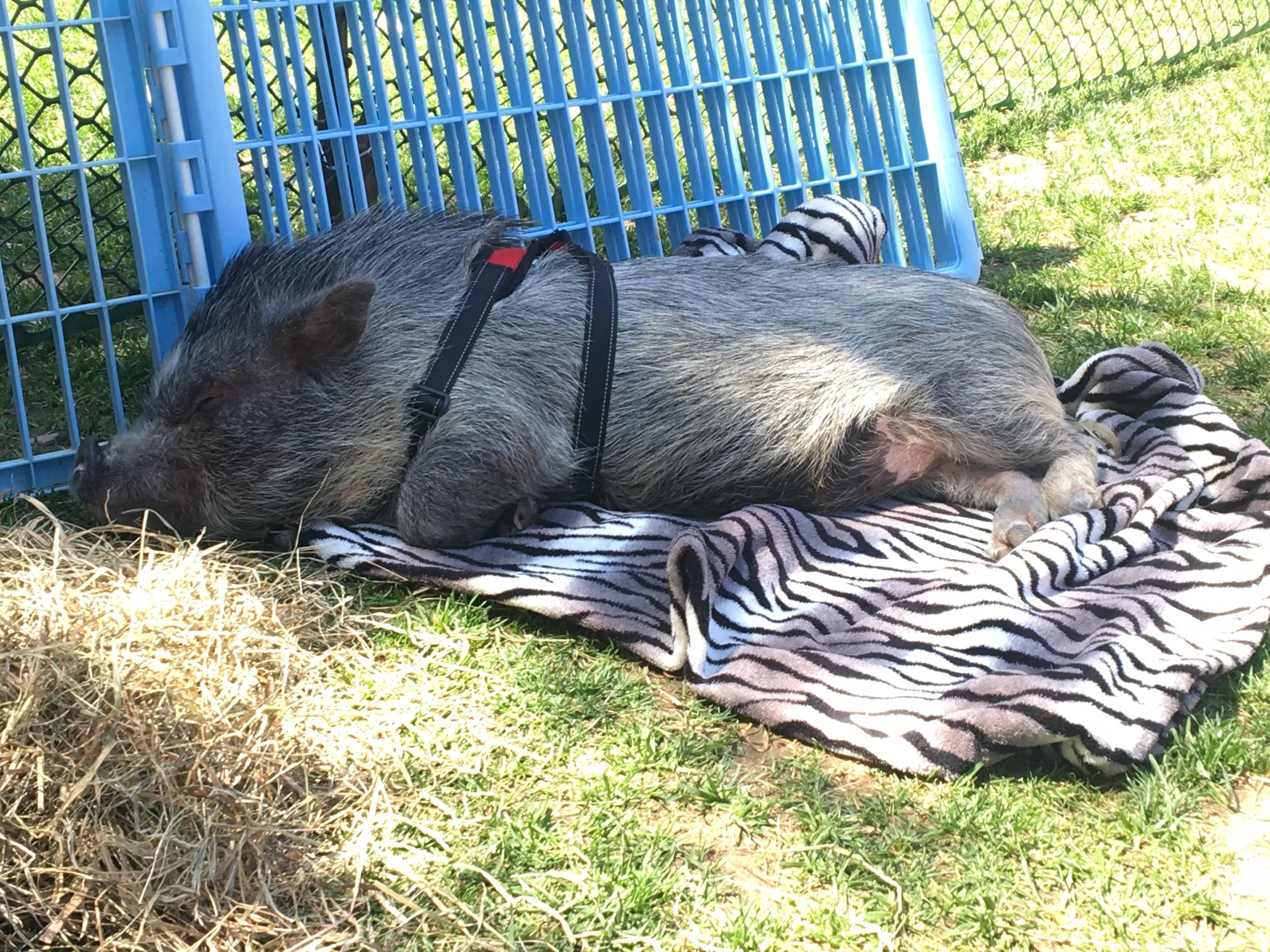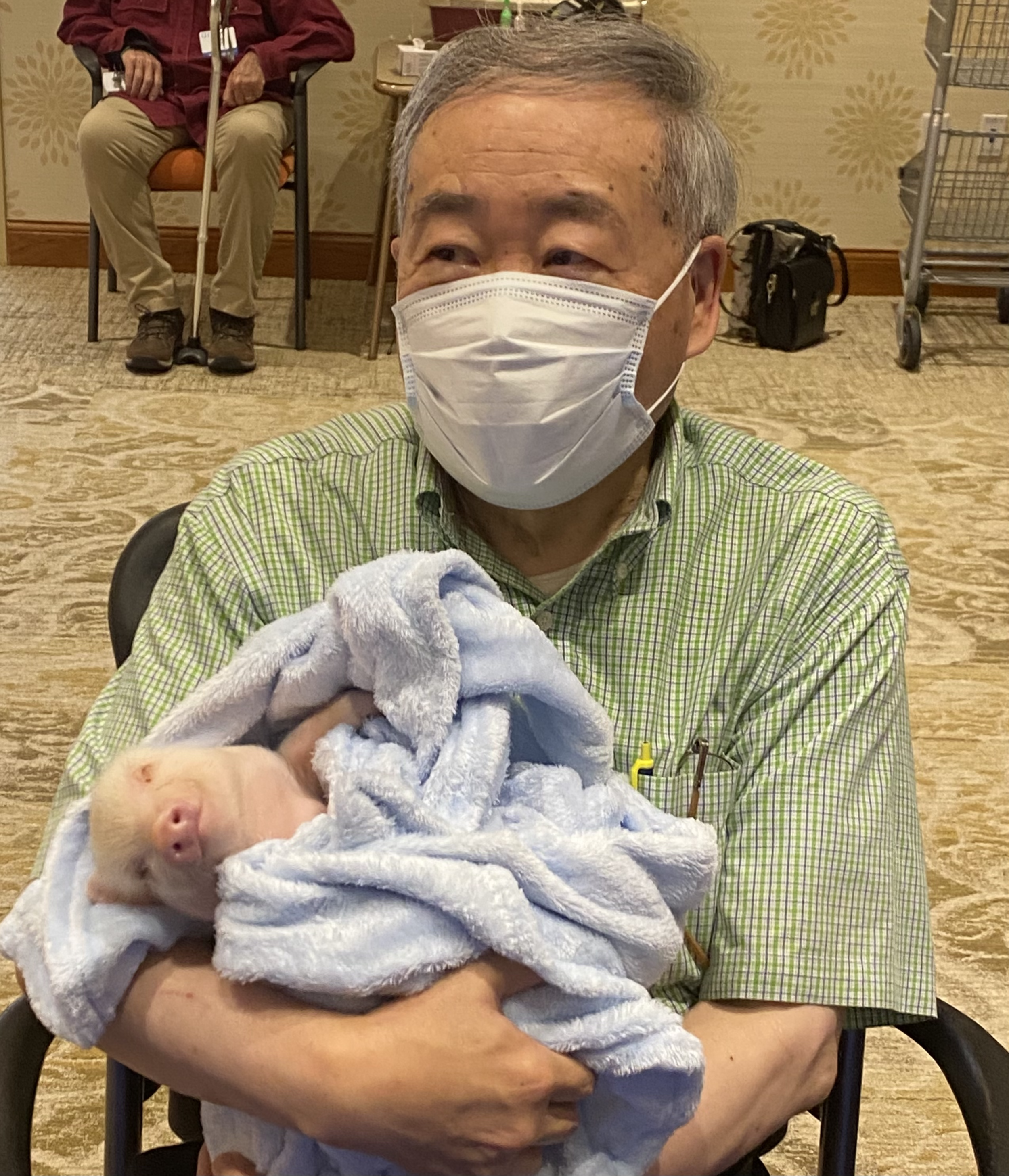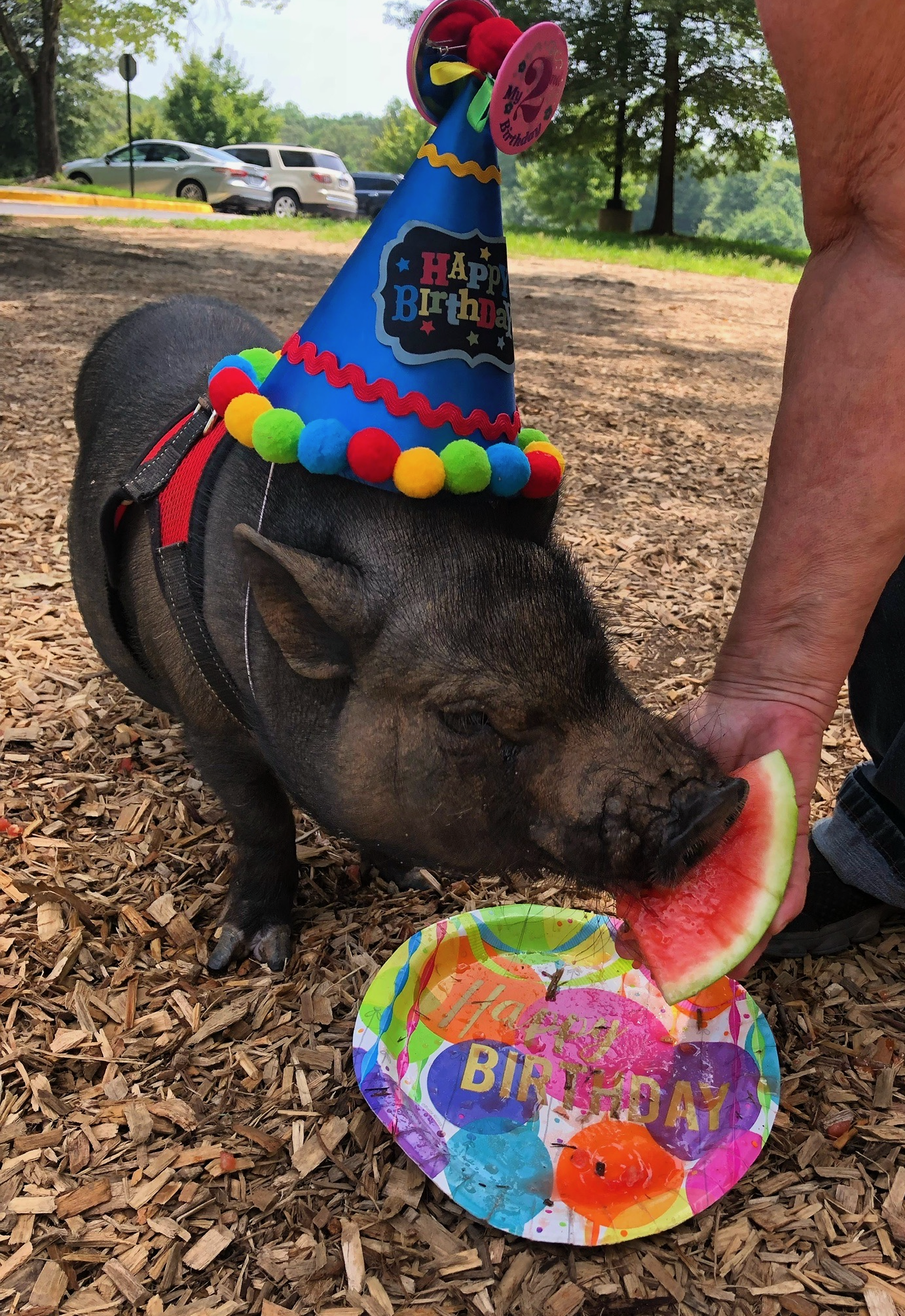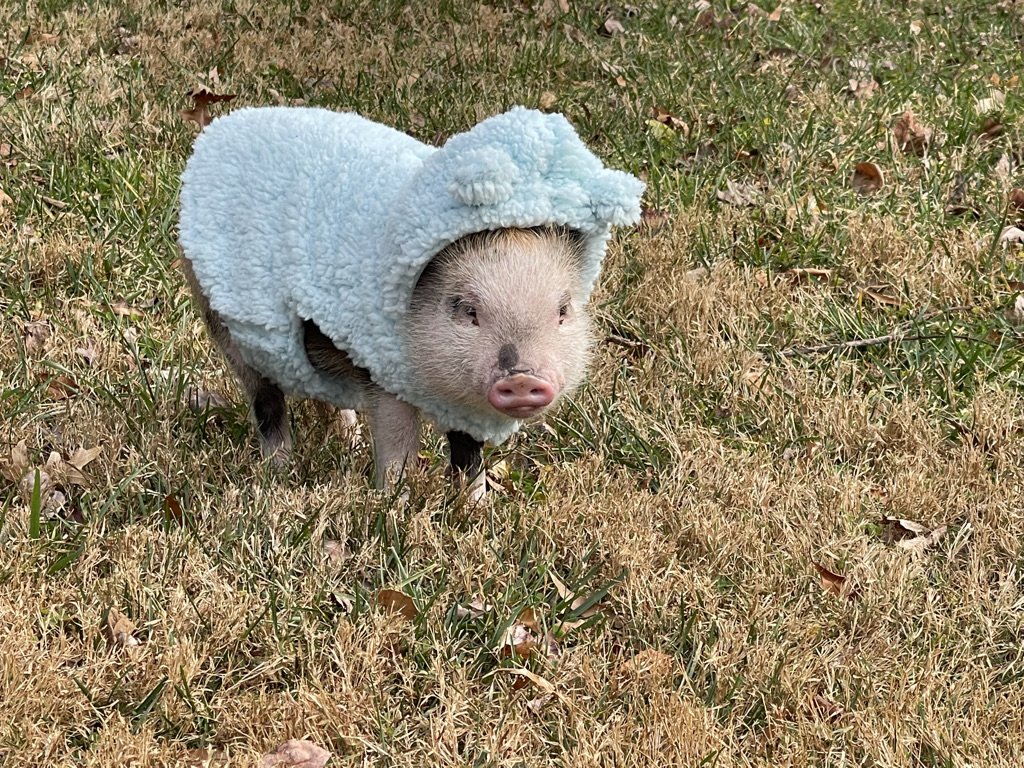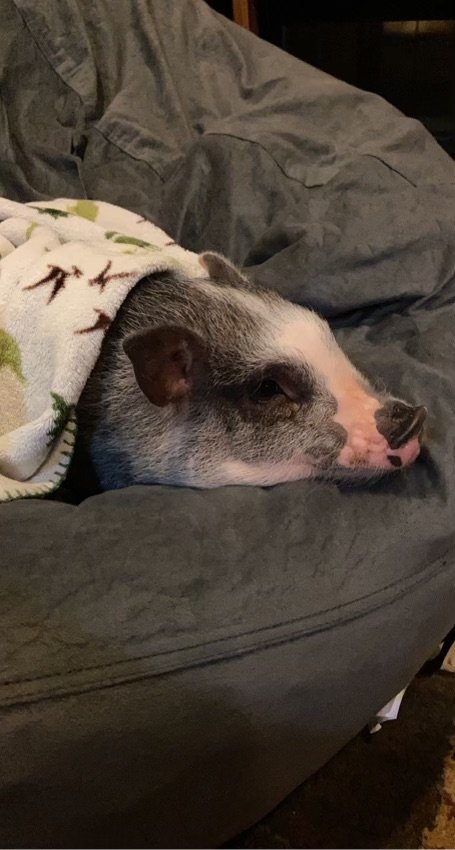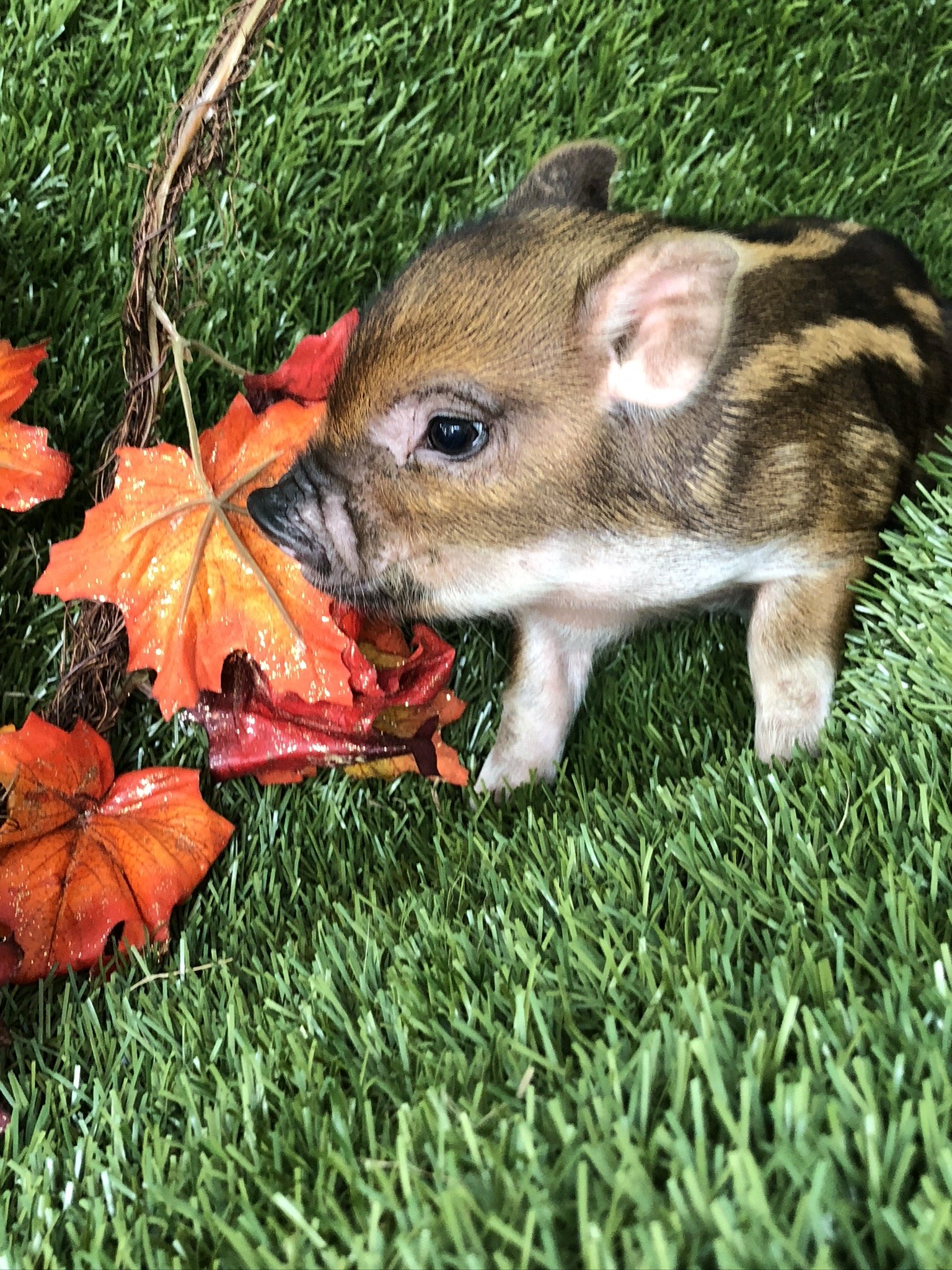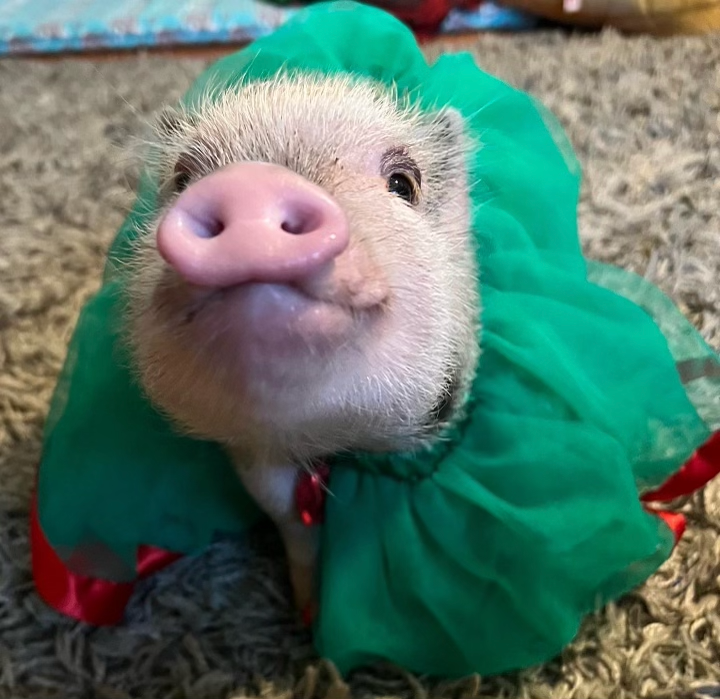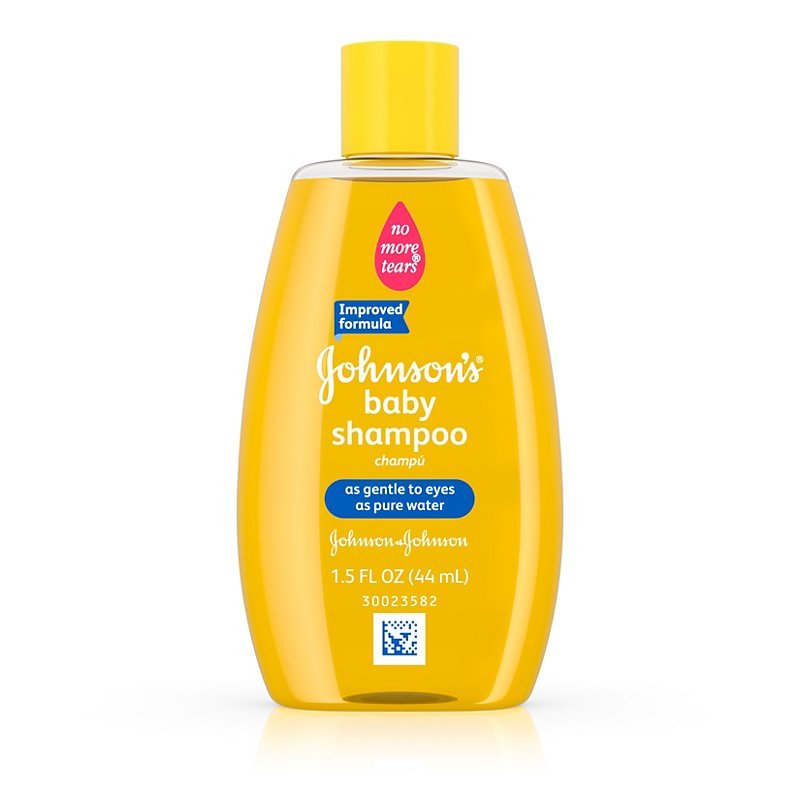Pig Care & Training | Care For A Teacup Pig
Pigs are a lot cleaner than people think & they make super pets also. Click here, learn how to take care of pet pig & share the best bond with your cute friend.
Care of your New Piggy and FAQ's
ACCESS TO WATER
Pigs need access to water at all times. They do not have the ability to perspire, so water is important to them. Some pigs drink a lot of water daily, some very little. Each pig is different regarding water intake. We use stainless steel non-tip bowls.
PEN/FENCED AREA AND BLANKETS
Pigs just LOVE to have their own bed and blankets! They need to have a spot they can call their own - it adds to their stability and they love to hide under blankets, snuggle in them, sleep on them. They will frequently drag their blankets around the house with them. They are a source of comfort. Provide numerous blankets if possible: one for inside, one for the car, one for outside housing. Old blankets are just fine - they are not fussy! It is best to start them out in a puppy pen/fenced area, We prefer puppy fences since they may be expanded/contracted as the piggy remembers their litter box manners. We recommend keeping them in a non-carpeted place until they are fully transitioned to using their litter box in your home or going outside. More info is discussed during our Piglet Education Hour on the day you pick up your piggy!
Blankets!
Piggies LOVE their blankets and the more they have, the more they love it! A blanket is the perfect "toy" and soft friend for your pig. In general, they love soft things and we often let them spend time with our large bunnies who they love to nuzzle.
TODDLER PROOF YOUR HOME
Piggies are so intelligent they can figure out how to get into just about anything. If there is a cupboard within their reach, they WILL figure out how to get into it and help themselves to whatever they find! It is important to ensure the food pantry and poison closet has child-proof locks on them!
LITTER BOX TRAINING
All of our pigs at Squeals on Wheels are litter-box trained before they leave. We suggest using dog litter boxes since they have a low opening in the front OR use Under the Bed sweater boxes and cut down one side as needed for easy entry OR cement mixing plastic bins from stores like Home Depot! Long, low under-the-bed sweater boxes work nicely if one is cut down for easy entry. Some pigs don't like climbing over the edge of a traditional cat litter box but many don’t care. We use wood chips/flakes (not cedar since the fumes from cedar are toxic to small lungs) for the litter. It can be found on Amazon here or at many tractor/farm supply stores.
TV/VIDEOS - you name it!
Yes, some little piggies really enjoy watching TV or videos (especially about pigs!) while they are camped out on your lap! They might even develop an enjoyment for certain TV shows. Some owners put music on or keep the TV on for those times when the owners are not home.
VACCINATIONS
Our piggies will not come with any shots. We do not live in a hogging area so there is little to no risk that our pigs would develop a pig disease. If you live in a hogging area or your vet is aware of some pig disease in the area where you live, then I would recommend giving your piggie the shots that are deemed necessary or are precautionary for your geographic location. Check in with your vet soon after you arrive home with your new piggy to determine vaccination policy in your state Pigs4Ever has a good article on vaccinations.
Neutering/spaying
Our male piglets will be neutered and our female piglets will be spayed before they are picked up and added to their new home.Thank goodness we found a Veterinarian in our area who will spay and neuter our very tiny piglets! These surgical procedures are necessary to ensure you have a wonderful and healthy pet piggy! An unaltered male will grow large tusks, become aggressive, and exhibit a foul odor. Females who are not spayed have a monthly menstrual cycle and may develop PMS-type symptoms (grouchy, "leave me alone", etc). Also, spayed/neutered females have a lower chance of developing mammary tumors and ovarian cancer as they age. Neutered/spayed piggies make wonderful pets!!
Hoof Care
Those little hooves on these tiny pigs will need some attention - maybe some filing or a little clip 3-4 times per year. We harness train our piglets and walk them on sidewalks so there is not a need to trim the hooves very often. Not taking care of your babies feet can result in stiff and/or deformed joints. We touch/handle the hooves are piglets from a young age so that new owners may easily file or clip their piglet's hooves. Please make sure you touch/handle the hooves every day!
FEEDING YOUR MINI PIG
We feed our mini pigs the pellets that are made JUST for mini pigs. These pellets are made with the correct amount of protein, 12% or 14%, with very little fat content. This Mini Pig Chow is made by several different companies and is available at local farm supply or feed stores. If you are not able to find this specially formulated mini pig food at a local feed store or pet store, please consider asking your Veterinarian if their office could order it for you.
We use Mazuri brand mini pig food.
Important Notes on Feeding:
Mini pigs have HUGE appetites and can easily become obese. The key to maintaining a healthy weight is to limit snacks, establish a feeding routine, and ensure your little piggy gets plenty of exercise. Potbellied pigs are omnivores, so their natural dietary intake in the wild would include berries, worms, raw eggs, roots, veggies, nuts, seeds, insects, and other little critters. It would be difficult to imitate this diet for your pig, but you can feed your pig a variety of healthy veggies along with the Mazuri Pellets. We feed our pigs twice a day (breakfast and dinner) and add veggies to the Mazuri Adult Mini Pig food pellets. Your pig’s diet may contain veggies such as broccoli and cauliflower (limit amount due to bloating and gas), green beans, sweet potatoes, corn, peas, edamame, bell peppers and peeled zucchini. We peel the zucchini (unless they are organic) because the skin may contain residual pesticides and synthetic fertilizers. It is best to introduce new veggies slowly.
WHAT YOU RECEIVE WHEN YOU PICK UP YOUR NEW LITTLE PIGGY
When you pick up your baby, you will receive a bag with a folder of their information (certificate of spay, information on birthday and parents), a bottle of baby shampoo and baby lotion. Your pig will come swaddled in a new blanket for a comfortable ride. If you need a starter bag of feed, let us know ahead of time and we will put that in you pickup bag as well!
RECOMMENDED READING
Highly recommend purchasing the book "Potbellies and other Miniature Pigs (Complete Pet Owners Manual)" by Pat Storer. Information regarding nutritional requirements and many other important topics are contained in the book. We also recommend the book: "Potbellied Pig Behavior and Training" by Priscilla Valentine. These are both excellent books and easily purchased on Amazon.com.
Worming
We worm our piggies every 3 months and more frequently dependent upon the season and the amount of time they spend outside. We worm with either Safeguard goat dewormer or Ivermectin. Ivermectin is the best choice, it provides coverage for worms and also kills mites such as mange. The Pigs4Ever website has an excellent article on worming!
Piggy FAQ
How and when do I harness train my new baby pig?
We recommend purchasing either a Figure 8 or an H-style harness. Never use collars as these are unsafe for the piglet's neck. Initially, place the harness near the pig's food bowl and let him sniff it for awhile, then put it on the piglet for an hour or so and the next day keep it on and begin to walk with him/her. We let the pigs walk us the first day. which helps them adjust to it. Next day, we call the pig using their name, i.e. "Come Polly Pocket!". When our pigs come to us we scratch their back and side "good pig!". Pigs know when they do something good and like to make you happy. Soon, they will be walking along with you! We will typically start harness training when there is an established level of trust between pigs and families - if they roll over to allow you to pet their stomach or come when you call their name. These signs of trust are good indicators that they will allow you to place the harness on them with minimum tantrum.
Do pigs get along with other animals?
Our piglets easily get along with other animals because they are raised with cats, dogs and all types of farm animals. Being raised with other animals is the key to ensure they get along with your own cats, dogs, etc. The pig is an animal of prey, whereas; dogs and cats are predators. Both cats and”dogs will attack other species of animals, including their own, as a part of their natural instinct. Pigs, as prey animals, are non-aggressive by nature. Their first instinct is to retreat (run) rather than attack. Part of the reason they squeal when picked up and held in the air is because their ability to retreat or run has been taken away. However, the more you hold them, the more they trust and the squealing decreases.
How do I take care of my piglet's dry skin?
Dry skin may be prevented on your piglet by applying a mild skin lotion on a daily or every other day basis. When you pick up your piglet from Squeals on Wheels, you will be given a bottle of the same type of lotion we use on all of our pigs, young and old. Pigs can easily develop dry skin - they have hair, not fur, and no sweat glands. Baths can dry out their skin so try to bathe them one time monthly or less - as needed. Because pigs do not have sweat glands, they do not produce “stink” from their bodies, all mess comes from external things like mud, poop, etc.
Are pigs a good pet for those children and/or adults who are allergic to other animals such as cats and dogs?
Yes, mini pigs are about 95% hypo allergenic. We have found a few of our piglets have developed dry skin and developed dander. It could be that people who are extremely sensitive to dander will have a reaction to this. But it is easy to prevent the dry skin and dander in pigs by applying lotion on a weekly basis, especially after baths!
How long do pigs usually live?
A healthy, well-care for pig will live an average of 12 to 18 years of age.
